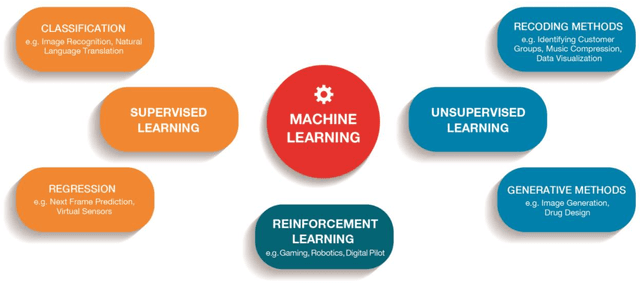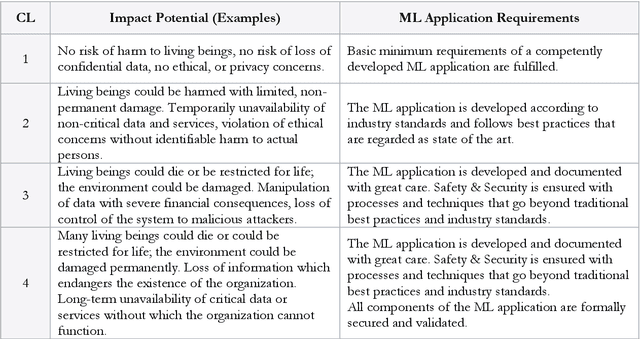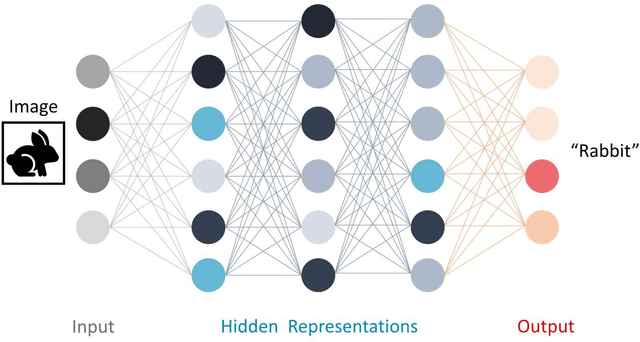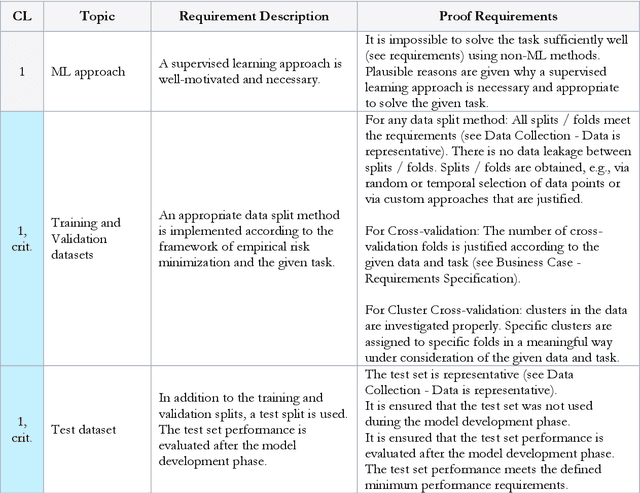Thomas Doms
Functional trustworthiness of AI systems by statistically valid testing
Oct 04, 2023Abstract:The authors are concerned about the safety, health, and rights of the European citizens due to inadequate measures and procedures required by the current draft of the EU Artificial Intelligence (AI) Act for the conformity assessment of AI systems. We observe that not only the current draft of the EU AI Act, but also the accompanying standardization efforts in CEN/CENELEC, have resorted to the position that real functional guarantees of AI systems supposedly would be unrealistic and too complex anyways. Yet enacting a conformity assessment procedure that creates the false illusion of trust in insufficiently assessed AI systems is at best naive and at worst grossly negligent. The EU AI Act thus misses the point of ensuring quality by functional trustworthiness and correctly attributing responsibilities. The trustworthiness of an AI decision system lies first and foremost in the correct statistical testing on randomly selected samples and in the precision of the definition of the application domain, which enables drawing samples in the first place. We will subsequently call this testable quality functional trustworthiness. It includes a design, development, and deployment that enables correct statistical testing of all relevant functions. We are firmly convinced and advocate that a reliable assessment of the statistical functional properties of an AI system has to be the indispensable, mandatory nucleus of the conformity assessment. In this paper, we describe the three necessary elements to establish a reliable functional trustworthiness, i.e., (1) the definition of the technical distribution of the application, (2) the risk-based minimum performance requirements, and (3) the statistically valid testing based on independent random samples.
Trusted Artificial Intelligence: Towards Certification of Machine Learning Applications
Mar 31, 2021



Abstract:Artificial Intelligence is one of the fastest growing technologies of the 21st century and accompanies us in our daily lives when interacting with technical applications. However, reliance on such technical systems is crucial for their widespread applicability and acceptance. The societal tools to express reliance are usually formalized by lawful regulations, i.e., standards, norms, accreditations, and certificates. Therefore, the T\"UV AUSTRIA Group in cooperation with the Institute for Machine Learning at the Johannes Kepler University Linz, proposes a certification process and an audit catalog for Machine Learning applications. We are convinced that our approach can serve as the foundation for the certification of applications that use Machine Learning and Deep Learning, the techniques that drive the current revolution in Artificial Intelligence. While certain high-risk areas, such as fully autonomous robots in workspaces shared with humans, are still some time away from certification, we aim to cover low-risk applications with our certification procedure. Our holistic approach attempts to analyze Machine Learning applications from multiple perspectives to evaluate and verify the aspects of secure software development, functional requirements, data quality, data protection, and ethics. Inspired by existing work, we introduce four criticality levels to map the criticality of a Machine Learning application regarding the impact of its decisions on people, environment, and organizations. Currently, the audit catalog can be applied to low-risk applications within the scope of supervised learning as commonly encountered in industry. Guided by field experience, scientific developments, and market demands, the audit catalog will be extended and modified accordingly.
 Add to Chrome
Add to Chrome Add to Firefox
Add to Firefox Add to Edge
Add to Edge